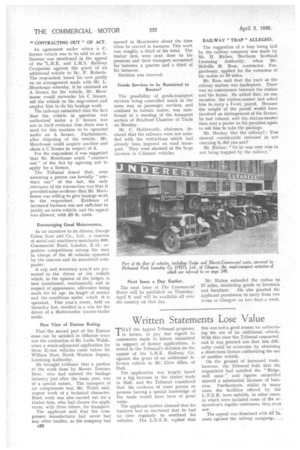Written Statements Lose Value
Page 44

If you've noticed an error in this article please click here to report it so we can fix it.
THAT the Appeal Tribunal proposes, in future, to pay less regard to statements made in letters submitted in support of licence applications, is stated in the Tribunal's decision on the appeal of the L.N.E. Railway Co. against the grant of an additional Alicence vehicle to Mr. Clive Allen, of Hull.
The application was largely based on a big increase in the timber trade in Hull, and the Tribunal considered that the evidence of some person or persons having a special knowledge of the trade would have been of great value.
The applicant further claimed that his business had so increased that he had no time regularly to overhaul his vehicles. The L.N.E.R. replied that this was not a good reason for authorizing the use of an additional vehicle. With this view the Tribunal concurred, and it was pointed out that this difficulty could be overcome by obtaining a short-term licence authorizing the use of another vehicle.
On the ground of increased trade, however, the Tribunal held that the respondent had satisfied the "Ridgewell onus " and figures submitted showed a substantial increase of business. Furthermore, whilst in many cases the facilities offered by the L.N.E.R. were suitable, in other cases, in which were included some of the respondent's regular customers, they were not.
The appeal was dismissed with £7 7s, costs against the railway company:












































































































